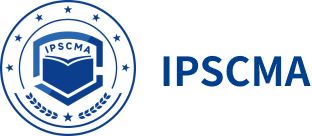In the current context of continuous fluctuations in global supply chains, the demand for procurement professionals is becoming more and more urgent. According to the data of Liepin in the third quarter of 2023, the talent demand for procurement-related positions increased by 23.7% year-on-year, of which the premium rate of talents with professional certification reached more than 35%. Procurement Engineer Certification (PMP - Procurement Management Professional) is reshaping the career path for procurement professionals as the industry's recognized gold standard. Driven by macro policies such as the "dual carbon" strategy and supply chain localization, new concepts such as green procurement and smart supply chain are emerging, which has made profound changes in the role positioning and capability requirements of procurement engineers.
After nearly 20 years of development and improvement, the procurement engineer certification system has formed a systematic knowledge framework and practice standards. According to the statistics of the China Federation of Logistics and Purchasing, by the end of 2023, there will be more than 150,000 certified procurement engineers in China, and the penetration rate in key industries such as manufacturing and construction continues to increase. The certification covers core modules such as procurement strategic planning, supplier management, cost control, and risk management, with special emphasis on the ability to apply new technologies in the context of digital transformation.
At the practical level, the certification system has set up assessment links such as case analysis and scenario simulation to ensure that the certified personnel have the practical ability to solve complex procurement problems. It is worth noting that with the popularization of ESG (environmental, social responsibility and corporate governance) concepts, the 2023 revised certification syllabus has added cutting-edge content such as sustainable procurement and supply chain carbon footprint management, showing the characteristics of the certification system to keep pace with the times.
According to data from Zhaopin, the average salary of job seekers with procurement engineer certification in 2023 will be 28.3% higher than that of unlicensed practitioners, and the pass rate of entry in top 500 companies will increase by more than 40%. This significant competitive advantage in the workplace stems from the fact that the certification system is highly aligned with the actual needs of the company. According to PwC's 2023 Corporate Survey, 89% of companies surveyed said they would give preference to procurement talent with professional certifications.
It is particularly noteworthy that driven by the rapid development of "specialized, special and new" enterprises, the professional requirements for procurement talents have been continuously improved. According to statistics, the number of certified procurement engineers in the manufacturing sector increased by 31.2% year-on-year in 2023, showing the urgent need for professionals in the market.
With the in-depth development of the digital economy, procurement is undergoing profound transformation and upgrading. Accenture Consulting predicts that by 2025, more than 60% of procurement operations will be handled intelligently. This requires procurement engineers to have new technical capabilities such as data analysis and intelligent system applications. The certification system has also correspondingly increased training content in emerging fields such as digital procurement and smart contracts.
Under the new development pattern of "dual circulation", the construction of the local supply chain system has started a new journey. According to McKinsey research, 70% of Chinese companies plan to increase investment in supply chain localization in the next three years. This has brought a broad space for the development of procurement talents with professional certification, especially in the field of strategic emerging industries such as new energy and high-end equipment manufacturing.
For practitioners who are interested in a procurement career, obtaining professional certification is an important way to enhance their professional competitiveness. It is recommended to choose a suitable certification time based on your own development plan. Generally speaking, if you have 2-3 years of practical experience in procurement, you can apply for the exam and achieve better learning results. In the process of preparing for the exam, you should pay attention to the combination of theory and practice, actively participate in industry exchange activities, and expand your professional horizons. At the same time, it is recommended to continue to pay attention to the development trends of the industry, especially the latest progress in hot areas such as digital transformation and sustainable development. According to statistics, nearly half of the certification exam questions will be combined with the current hot topics to examine the candidates' practical application ability. In addition, it is possible to translate the knowledge learned from the certification into practical solutions by participating in practical enterprise projects. As an important endorsement of professional ability, the value of procurement engineer certification has been widely recognized by the market. In the context of the profound adjustment of the global economic pattern, procurement talents with professional certification will play a more important role. In the future, with the continuous optimization of the certification system and the continuous improvement of market demand, the certification of procurement engineers will open up a broader career development space for practitioners.
